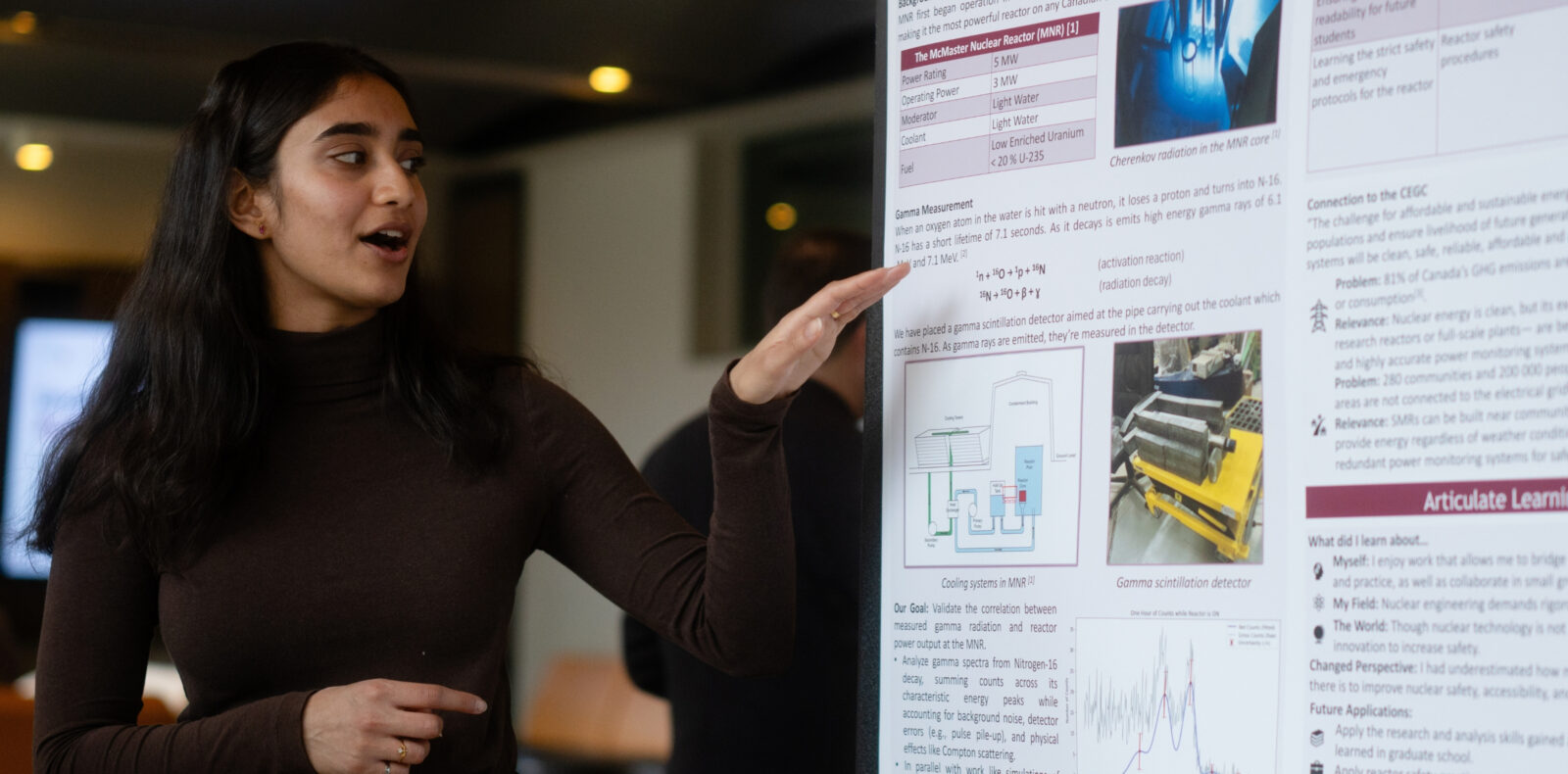Are you a final-year engineering student? Become a Canadian Engineering Grand Challenges Champion!
Present your learning experience at the CEGC Showcase and earn a certificate and a Letter of Recognition from the Dean of Engineering.
Students must be nominated by a McMaster Engineering faculty or staff member.
The Canadian Engineering Grand Challenges (CEGC) were introduced in 2019 by Engineering Deans Canada to address the most pressing and critical issues facing Canada today. These six challenges highlight areas where engineering innovation and leadership can make a significant impact:
- Resilient Infrastructure
- Access to affordable, reliable and sustainable energy
- Access to safe water in all communities
- Inclusive, safe, and sustainable cities
- Inclusive and sustainable industrialization
- Access to affordable and inclusive STEM education
These challenges serve as a call to action for engineering students and professionals to create innovative solutions that improve the lives of Canadians.
To become a CEGC Champion, follow these steps:
- Receive a nomination from a McMaster Engineering faculty or staff member.
- Complete the CEGC eCampusOntario Course
Finish Modules 1-3 to gain foundational knowledge and insights into the Canadian Engineering Grand Challenges. - Present your learning experience
Create and present a poster showcasing your learning and innovative ideas related to one of the six Canadian Engineering Grand Challenges. - Earn your recognition
Receive a CEGC badge and a Letter of Recognition signed by the Dean of Engineering.
The program is open to all final-year engineering students, including those in the iBioMed program. Note: Students in the BTech and Computer Science programs are not eligible to participate.
Any project or learning experience that addresses one or more of the Canadian Engineering Grand Challenges is suitable for the program. This could include:
- Academic Projects: Capstone projects, research papers, or design projects related to engineering solutions.
- Extracurricular Activities: Participation in competitions, hackathons, or volunteer initiatives connected to the challenges.
- Workplace Experiences: Internships, co-op placements, or other professional experiences where you contributed to addressing one of the challenges.
- Independent Initiatives: Self-driven projects or learning experiences that explore innovative ideas within the scope of the challenges.
The showcase will be held in April, 2026. Exact date and location TBD.
If you have questions about the CEGC Champions Program, please contact changers@mcmaster.ca
Where to find us
John Hodgins Engineering Building 316
McMaster University
1280 Main St W, Unit 38
Hamilton ON L8S 4M4
Email: changers@mcmaster.ca
Phone: 905-525-9140 ext. 24635

